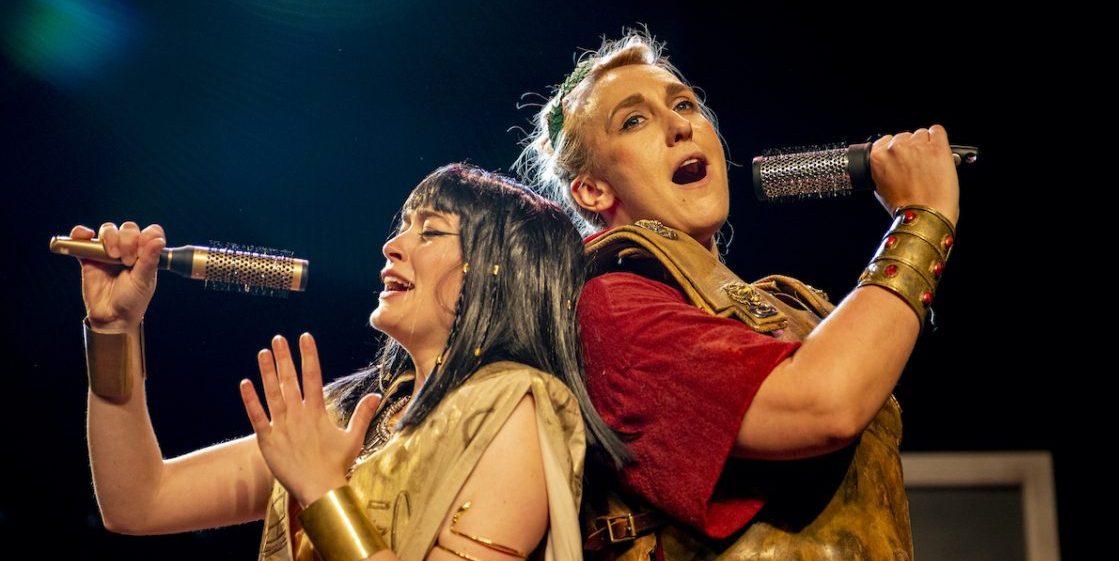Johann Hasse was one of the most popular opera composers of the eighteenth century. He died in 1783 (just 8 years before Mozart’s death) but he was 84 and very much a product of the opera seria tradition. It is sad that his work has almost entirely disappeared from the UK repertoire – and, although this performance of his serenata Antonio e Cleopatra will not win many new fans, it will hopefully be enough to persuade other companies to look into full operas amongst his collected works.
A serenata was a short piece for two voices usually composed as part of a tribute to an important person – and in this case, the music ends somewhat unexpectedly with a paean of praise for Emperor Charles VI, the Hapsburg monarch of the period. The story is of the fate of Anthony and Cleopatra after their defeat at the naval battle of Actium. The inventive director Evangeline Cullingworth imagines them as if they are an ersatz Bonnie and Clyde hiding out in a hotel room and on the run. They first appear in modern dresses dragging suitcases and from the look of their room, the hotel is no luxury establishment. However, as they sing to each other of their love and it becomes clear that a suicide pact is the only honourable outcome for them, the time frame seems to slip and they change clothes until, in the end, they become the embodiment of the traditional images of the seductive Egyptian queen and the noble Roman general.
Despite some sharp and stylish playing by the small orchestra under the direction of Sakoto Doi-Luck at the harpsichord, the performance has to rely on the vocal prowess of the two singers. In the first performance in 1725, Antonio was sung by the famous contralto Vittoria Tesi and Cleopatra by the renowned castrato Farinelli. Here we have soprano Ellie Neate as Cleopatra and she is simply superb, tracing the arc of the character from despair to pride and determination with musical subtlety and dramatic truth. As with most vocal writing from the early eighteenth century, there are some difficult stylistic choices to be made by the performer but by the end of the piece, she sounds totally in control. And she is well matched by mezzo Thalie Nights as Antonio. Her rich lower tones are well used in conveying Antonio’s gloom and confusion in the early exchanges with Cleopatra and her voice seems to grow in stature as she follows her lover into determination to die in freedom rather than live in slavery.
The limitations of the serenata form are only too obvious but the Buxton team made a strong case for this piece and for the skill of Hasse in creating dramatic music to tell a simple story. With strong performances, beautiful instrumental playing, and a director with a clear idea about making links between ancient and modern this performance was brief in time but long on musical impact
Part of Buxton International Festival

